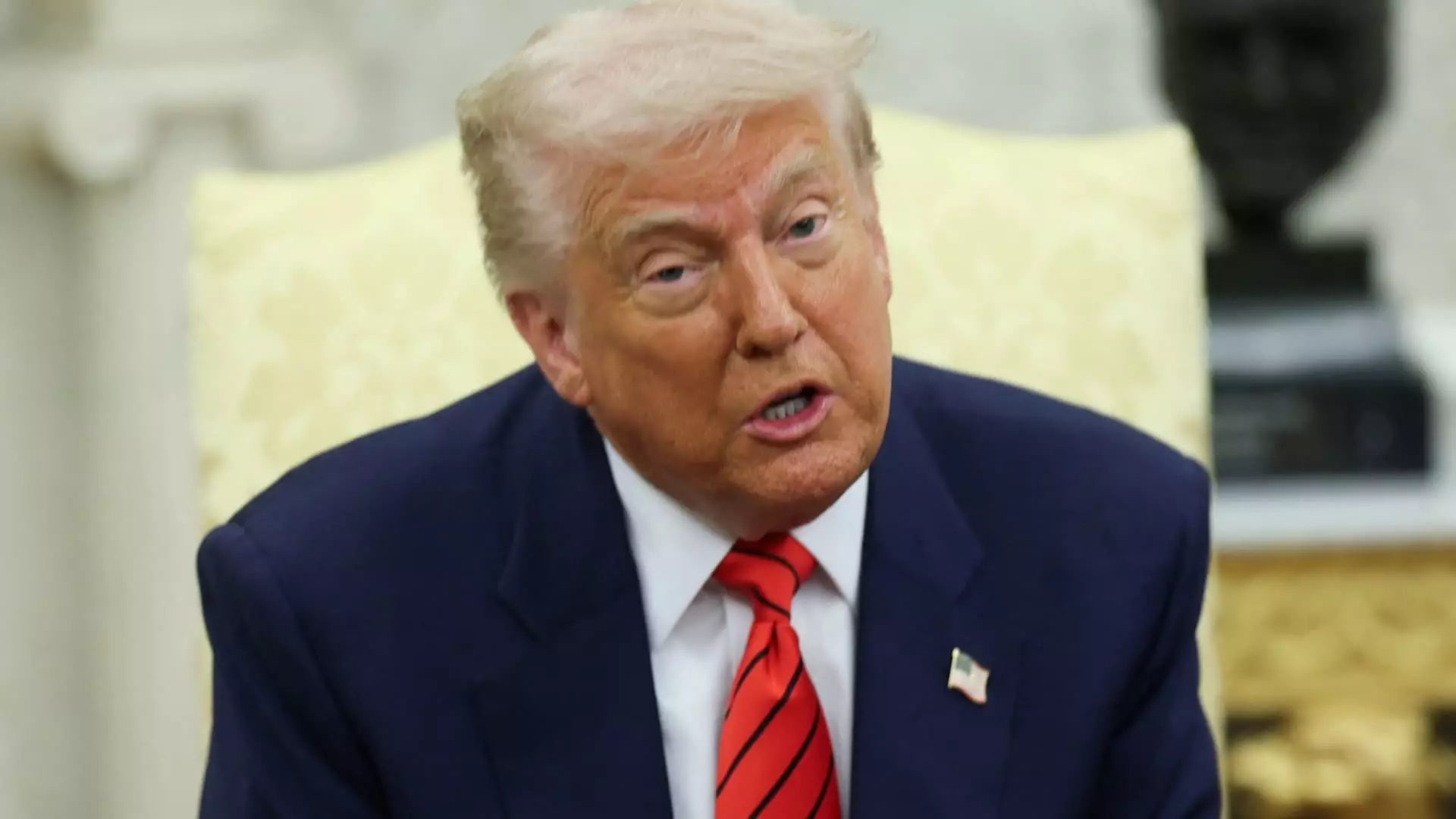In what could be seen as a touch of irony, President Trump recently declared that the United States doesn’t really need to sign trade deals; rather, it’s the other countries that should feel the urgency. “We don’t want a piece of their market,” he insisted, disregarding the intricacies of global trade dynamics. This mindset, while bold on the surface, encapsulates a fundamental misunderstanding of how international relations work in a world dominated by interdependence. Many economists argue that trade deals aren’t merely ceremonial; they are the framework through which the U.S. can wield its economic influence effectively. Dismissing these essential agreements undermines both the value and necessity of cooperative bargaining in favor of an almost self-imposed isolationism.
The Discrepancy Between Rhetoric and Reality
Trump’s recent comments highlighted a glaring disconnect between his administration’s priorities and the economic realities affecting American businesses. Top officials, including Treasury Secretary Scott Bessent, had been assuring both the public and investors that significant trade deals were imminent. Yet the president’s abrupt shift in tone seems to cast doubt on these assurances. During a meeting with Canadian Prime Minister Mark Carney, he quipped that he wished everyone would stop asking about the deals, seemingly frustrated by the expectations set by his own administration. This inconsistency sends mixed signals to both international partners and domestic stakeholders, leaving a cloud of uncertainty that can only serve to stifle investment and economic growth.
A Policy Shift or a Tactical Retreat?
Does Trump’s reduction of focus on trade deals signify a calculated strategy in an evolving diplomatic landscape? Or is it merely a reflection of his struggle to navigate the complexities of international relations? The art of negotiating deals is far removed from the binary thinking that often characterizes Trump’s public pronouncements. The president positioned the U.S. as a “super luxury store,” which raises the question: can a country truly leverage the strength of its market while neglecting the relational dynamics that keep that market thriving? Such a stance risks alienating trading partners, ultimately undermining the very economic advantages Trump claims to protect.
The Investor Anxiety and Economic Implications
As Trump publicly downplays the idea of concrete trade agreements, investors have responded with visible apprehension. U.S. markets oscillated lower in response to his remarks, reflecting a growing concern that the administration’s lack of action could jeopardize economic stability. The potential effects of the tariffs already imposed on key trading partners loom large, and with many businesses anxiously awaiting formal agreements to ease trade tensions, the absence of definitive actions only fuels anxiety. When the president implies that deals can wait, it sends a disheartening message to corporations and investors that could have otherwise benefitted from robust trade relations.
Splintered Ideology in a Connected World
Trump’s approach appears to be a blend of nationalism and opportunism, which is a dangerous concoction in today’s interconnected global landscape. By framing trade as something that should benefit only the U.S. and not viewing it as a mutual relationship, he risks alienating critical allies like Japan, South Korea, and India, who have their own economic interests to protect. The notion that other nations should simply conform to U.S. demands does not stand up to the reality that cooperation is vital for overcoming shared challenges. In a world where supply chains cross multiple borders, the preservation of relationships often matters more than any single deal.
A Call for Honest Conversations about Trade
As the conversation around trade continues to evolve, it becomes increasingly important for leaders—including Trump—to ground their narratives in reality rather than simplifying them into grand rhetoric. The focus should shift from dismissing the necessity of trade deals to engaging in earnest discussions about what those deals should look like. By doing so, the U.S. can not only protect its interests but also emerge as a responsible leader on the global stage, capable of navigating the complexities of modern economic relationships. Rather than building walls erected on misconceptions, a collaborative framework can pave the way for mutually beneficial outcomes that will sustain businesses and economic growth long into the future.

